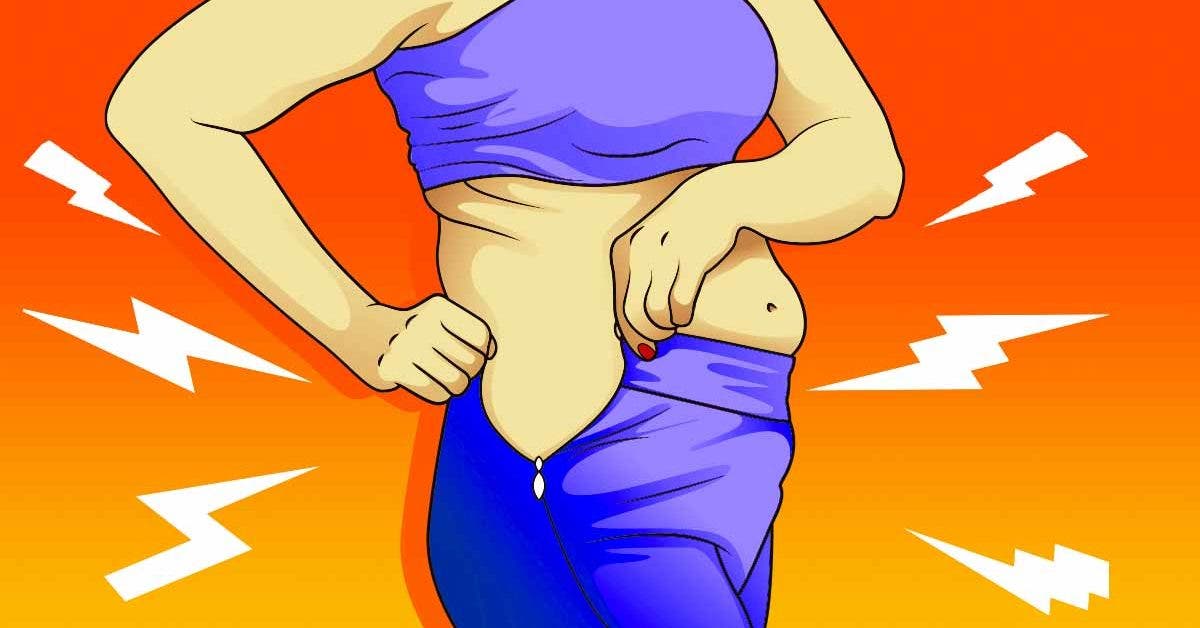Belly fat is a real nightmare. We try to get rid of them at all costs, but we often do not know what favors their storage. We do not have enough information on their mechanism, which makes their elimination more difficult. By trying to follow a diet, you are more likely to make certain mistakes, which only make the situation worse.
Belly or visceral fat is a fatty mass present in the belly. Present and stored in excess, they expose you to several diseases, including diabetes, cholesterol and high blood pressure.
To assess their risks to your health, you must measure your waist circumference, which must not exceed 80 centimeters for women, and 94 cm for men.
In addition, it is essential to pay attention to your daily habits. These can promote their accumulation and hinder your slimming efforts. Here are the 4 most common mistakes that cause belly fat accumulation:
1. Assign high-calorie meals to dinner
Many of us succumb to the temptation to snack during the day, dedicating our most important (and highest calorie) meal to dinner, which we associate with a moment of relaxation at home. Unfortunately, this error is often responsible for fat accumulation because the body tends to store more after late meals. A study has also shown that nighttime food cravings are strongly associated with being overweight.
To take these metabolic restrictions into account, you may adopt Chrononutrition diet that is based on your circadian rhythm, or what is called the biological clock. This stipulates that one must take the right food at the right time. Breakfast should be the most important meal of the day, made up of good fats and protein, to help the body regain its energy. Indeed, depending on the time they are consumed, the nutrients are not assimilated in the same way. Thus, sugar and lipids will not be stored by your body if they are consumed in the morning, but they will be if they are taken in the evening.
2. Believing that all calories have the same energy content
If you evaluate two different foods, such as 50 calories of nuts and 50 calories of spread, the results will be different as well. It turns out that the thermogenic effect of proteins is higher than that of carbohydrates and lipids. The latter are metabolized respectively, between 5% and 10% for the former, and 0% and 3% for the latter. Proteins, on the other hand, metabolize 20% to 30% of the body's energy.
3. Adopt a restrictive diet
The stress and urgency of certain events during which we want to look our best sometimes push us towards restrictive diets. It is then believed that a low calorie intake will help us lose weight quickly. But this is far from being sustainable over time. The greater the calorie deficit, the greater the risk of a yo-yo effect, with sometimes a more substantial weight gain. Especially since drastic diets marking a very significant calorie deficit, push the body to make a metabolic adaptation that hinders weight loss.
To find the line effectively and ensure its stability over the long term, it is therefore preferable to avoid draconian diets. A progressive calorie deficit and a balanced diet will prevent you from the yo-yo effect once your diet is over.
4. Eating several meals a day without understanding the mechanism
We often hear that it is more effective to eat several meals a day because it would lead to greater fat breakdown and stimulate the metabolism. On the other hand, what is often overlooked is that it is not a question of eating 6 times a day, but of eating in small quantities, just enough to prolong the feeling of satiety throughout the day. As Aline Ways, holistic nutrition coach, explains, this will allow the body to have energy available continuously, but it will also prevent it from drawing on fat.
Moreover, according to a scientific study, eating adequate amounts following a traditional pattern would have a greater thermogenic effect than 6 smaller portions. Still according to the aforementioned chrononutrition diet, it is therefore better to take 3 to 4 meals a day: preferably breakfast, lunch, a mid-afternoon snack and dinner. You just have to be sure to space meals at least 4 hours apart.


